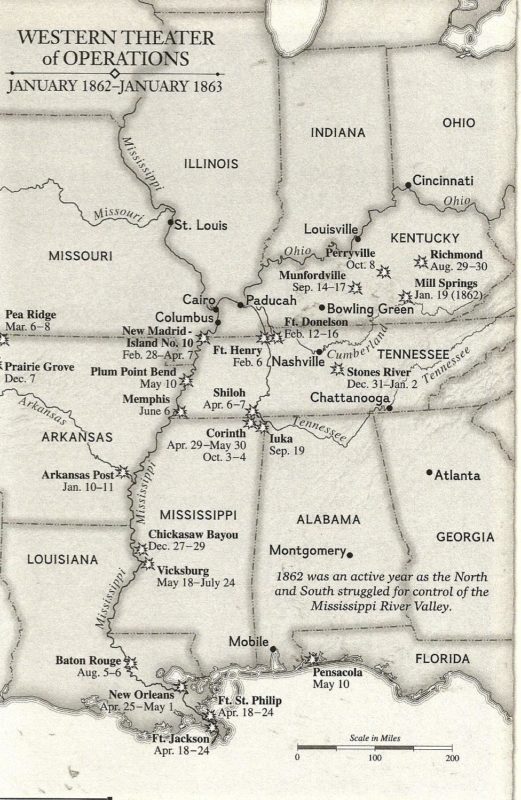War in the West: The Capture of Corinth Mississippi

Corinth, Mississippi
Called the “Crossroads of the Confederacy”, Corinth, Mississippi was the strategic point at the junction of two railroad lines vital to the Confederate States of America; the Mobile and Ohio Railroad and the Charleston Railroad. Both rail lines penetrated south as far as Mobile on the Gulf of Mexico, east to Charleston on the Atlantic Ocean and West to Memphis on the Mississippi.
Leroy Walker, the CSA Secretary of War, called Corinth, Mississippi “the vertebrae of the Confederacy”.
After the Battle of Shiloh, Union General Halleck said, “Richmond and Corinth are now the great strategic points of the war…”
General P.T. Beauregard said of this rail center: “If defeated here, we lose the Mississippi Valley and probably our cause.”
So, following the battles of Shiloh and Island #10 on April 7, 1862 it was decided that Corinth would be the next target for the Union forces in the West. Toward that end, General Halleck ordered three armies to gather at Pittsburg Landing, Tennessee: Grant’s Army of the Tennessee, Buell’s Army of the Ohio, and Pope’s Army of the Mississippi. So, before the end of April, Halleck had assembled almost 120,000 seasoned troops for the attack on the Corinth rail center.
In Corinth, Confederate General P.G.TS. Beauregard had nearly 68,000 men with which to defend the strategic town. After several weeks of siege by Halleck’s Union force, Beauregard saved his army from capture by slipping away on the night of May 30, 1862.
Meanwhile, a Union flotilla under the command of Flag Officer Charles Henry Davis met and defeated a Confederate naval force at Fort Pillow. This was a Confederate stronghold on the Mississippi River between Island 10 and Memphis.
On June 6th, Davis led his flotilla in another attack. This time, he met in battle a Confederate naval force of equal size. They met just north of Memphis. In only 90 minutes, his force sunk seven of the eight Confederate boats while many of the people of Memphis watched from the city’s heights. The Davis force gained a complete victory and also secured the surrender of the city of Memphis.
This gave the Union control of the Mississippi River from Cairo, Illinois south to Vicksburg, Mississippi. With the capture of Corinth and Memphis, the way was clear for the Union army to attack Chattanooga, Tennessee in the East and Vicksburg, Mississippi in the West.


 A Great Read! I couldn’t put this book down once I got started. The detail was great and I really like the main character, Michael. Knowing that so much research went into this book made it exciting to read!
A Great Read! I couldn’t put this book down once I got started. The detail was great and I really like the main character, Michael. Knowing that so much research went into this book made it exciting to read!